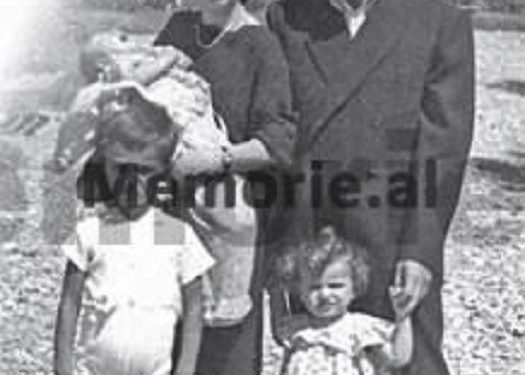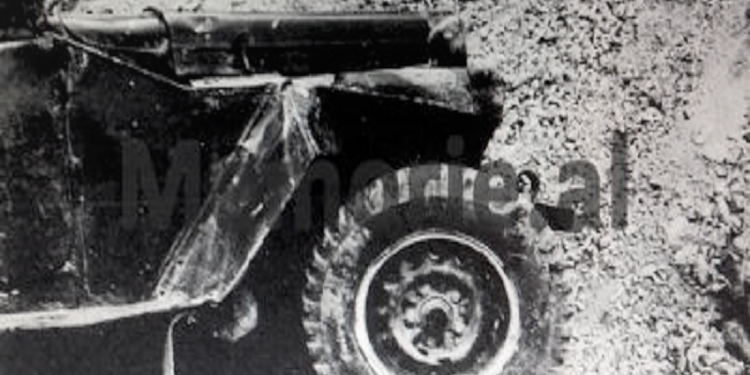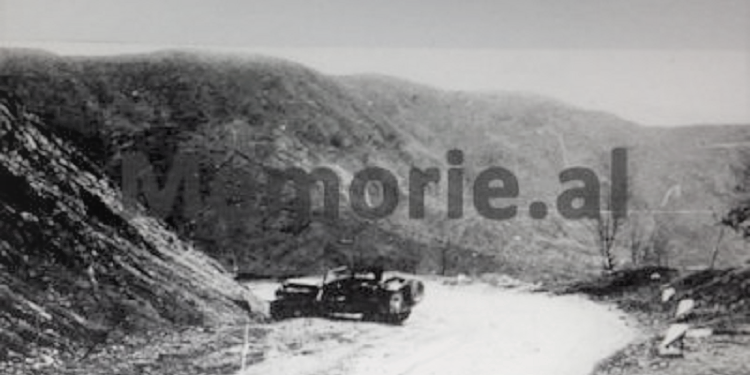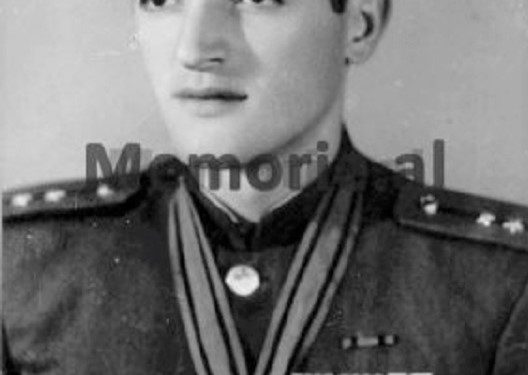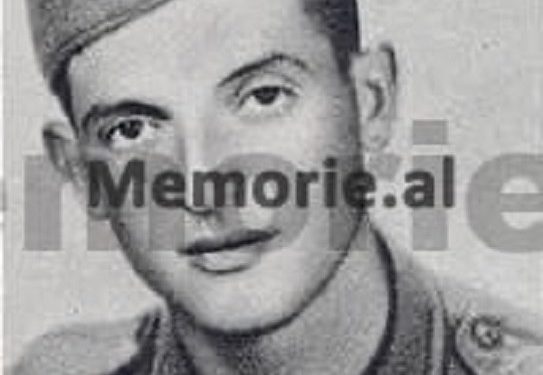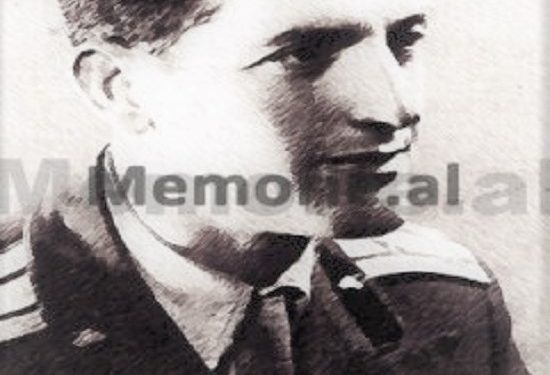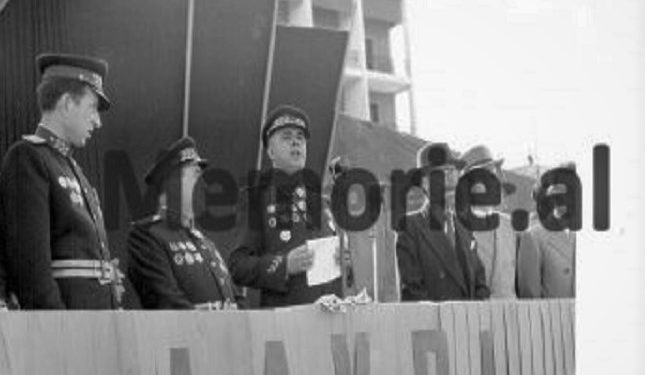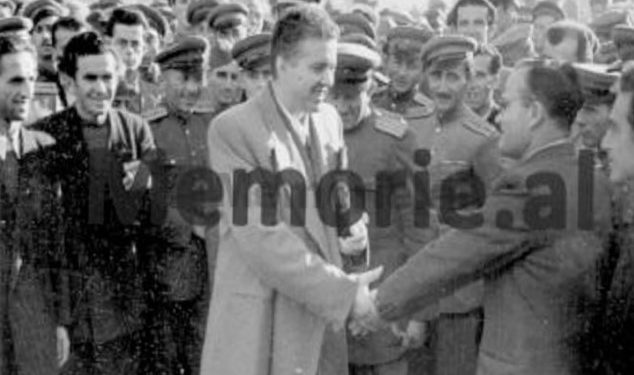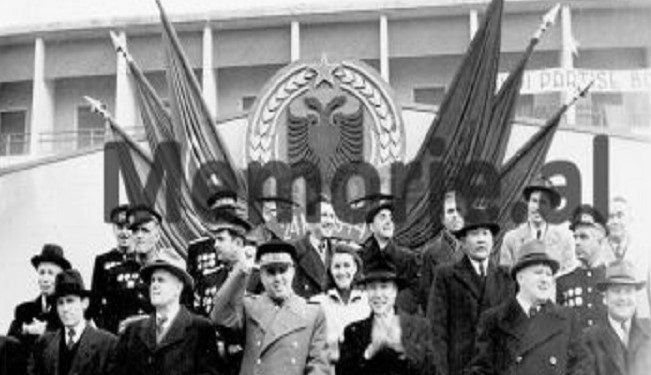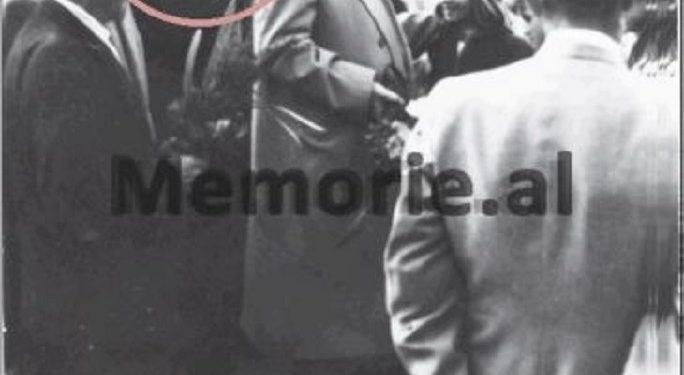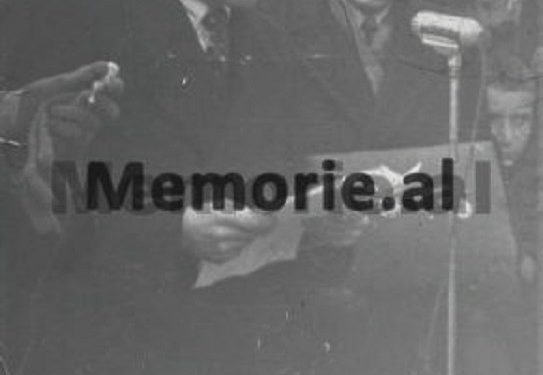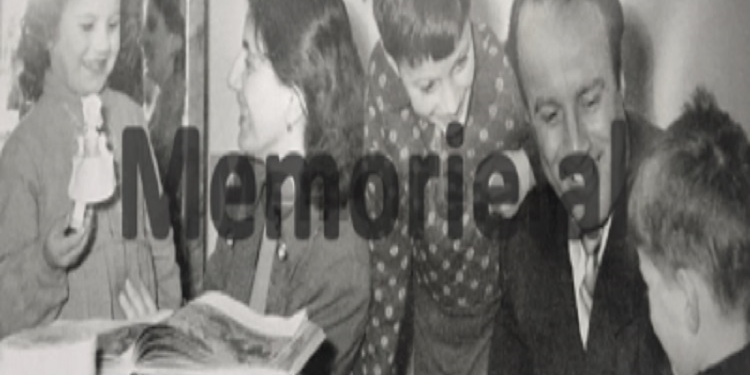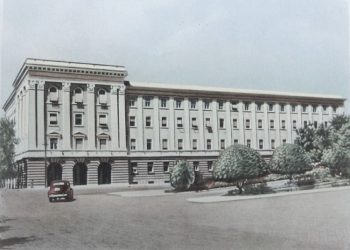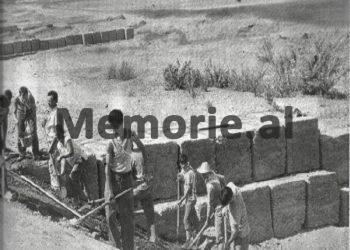Dashnor Kaloçi
Memorie.al publishes the stories of some of the most sensational and controversial “accidental deaths” of communist Albania, where five dignitaries and senior officials of that regime lost their lives in unclear circumstances. Testimonies of family members and relatives with all the details of the mysterious events where they were suicide or killed: Minister of Communications Colonel Njazi Islami, Deputy Minister of Interior Colonel Sali Ormeni, Head of Shkodra Interior Branch Major General Hilmi Seiti, the chairman of the Elbasan Executive Committee Zenel Islami, and People’s Hero Myslym Keta.
follows from the previous number
The mysterious disappearance of Sali Ormen !?
But what really happened to Sali Ormen? According to the testimony of his driver, Luto H. (who lived until recently in Fier) given to Xhemal Immer, (Sali’s nephew) among other things: “On March 3, 1950, in the early hours of the morning, I got in the car and went to his villa, Sali heard a noise and came out on the stairs in pajamas and when she saw me she said to me: Hey Luto, did you come to pick me up? I told him I had not gone to pick him up, but the Soviet adviser, General Ivanonv, (who resided in the same villa with Saliu), explaining that since the advisor’s car was broken and Saliu was lying in bed hospital, they had sent me to get the Soviet general. After that he told me to wait for him to get dressed and as soon as he got in the car he ordered me to head to the Palace of Brigades. Somewhere in Sauk he told me to stop and as he got down, I saw the Political Directorate’s Tatroplan car passing us and inside was Beqir Ndou, a Soviet general and a lieutenant. Sali didn’t see them and when I told him he ordered me to follow them, but since our car was an old Czech one, we couldn’t reach them. When we went to Elbasan, we asked at the Military Branch where we were told: Beqir Ndou was with the Soviet adviser in the Krasta Military Brigade. After that, Sali went there and met Beqir, talking for about five hours with each other. ”
Deputy Minister Beqir Ndou: How I parted with Sali!
Beqir Ndou (brother in law of the famous actor Guljelm Radoja), Sali Ormen’s closest friend and friend, has also testified about that meeting. In his testimony Ndou stated: “In Krasta Brigade I and Saliu did not stay for more than 20 minutes talking to each other and it is not true that we stayed there for about 5 hours, as Enver Hoxha stated in the report. at the 2nd Congress of the APL. As soon as I met Saliu, I asked him why he was upset and whether he was upset about why I hadn’t gone to see him in the hospital. Sali said to me: Not that I am not happy with you, but I have some troubles and I am a bit reluctant from rheumatism. After exchanging some words there and with Soviet adviser General Ivanov, we headed to Elbasan, where Saliu told us to stop the car as he would go to Lillex for a few days to rest. I proposed to go to Tirana to have lunch at my house, but he refused, and we stayed together for the last time, as I continued on my way to Tirana, “concludes the testimony of Beqir Ndout, who died the same day. upon returning to Tirana, he was arrested at one of the chiefs’ offices in the Ministry of Defense and subsequently taken to the Tirana prison where he was interrogated daily for links to Sali Ormen. After being held in prison for six months in a Tirana prison, handcuffed Beqir Ndou was taken before a narrow plenum of the Central Committee of the PLA, where Enver Hoxha himself began to pressure him, telling him among other things: “Beqir Ndou, speak and tell the Central Committee, what secrets Sali Ormeni has got to you, tell and relieve yourself.”
Enver’s version of Ormeni at the Second Congress
In the report that Enver Hoxha held at the 2nd Congress, he also spoke about the event of the murder of Sali Ormen and the imprisonment of his close friend, Beqir Ndout, who at the time besides the post of Deputy Minister of Foreign Affairs. He also held the position of Deputy Chief of the Political Directorate of the Army. At that congress, speaking about the elimination of two members of the ASP Central Committee, among other things, Enver said that, during an attempted escape, Sali Ormeni had killed himself in the Paprri forests, where he was found by pursuit forces the following day. of that day. Concluding his speech, Enver Hoxha said he had no doubt that Armenia was a hidden enemy of the people and the party.
Testimony of Mehmet Shehu’s companion
One of the people who knew and testified about the mysterious elimination of Sali Ormen is S. Aqhemi, who at the time the event happened, served as Mehmet Shehu’s companion. Regarding this, Aqhem said: “On the day that Sali Ormeni was killed, on March 4, 1951, by order of Mehmet Shehu, I prepared two vehicles” Gaz 69 “and another car with soldiers of the Battalion Following up, we immediately went to the scene. Near a dead body, Mehmet Shehu and Kadri Hazbiu approached, and I stayed away because I could not see my former commander, Sali Ormen, in that state. I heard a crackling shoe and the words of Mehmet Shehu who said: ‘What did Sali Ormen, the Party of a loader, do to you high cadres and reward them so? Then Mehmet Shehu ordered: deal with it, ”concludes testimony S. Aghem, a former companion of Mehmet Shehu. But according to relatives and relatives of Sali Ormen, this testimony casts a shadow of doubt and further covers the mystery of his disappearance, raising many questions; was it really the body of Sali Ormen, or was it simply a trick of the State Security to justify his suicide ?! So it was a combination designed by State Security to justify the physical elimination of the Director General of State Police and the Deputy Minister of Internal Affairs who denounced the bombing at the Soviet embassy in Tirana, stating that it was a the work of the State Security and the police he led, had nothing to do with it ?! Although nearly seven decades have passed since that event, Sali Ormen’s family and relatives have no idea where his tomb is. An archive document that has been in their possession in recent years, confirms that Sali Ormeni was not killed, but shot …?!
The mystery of Zenel Islami’s assassination
One of the other most talked about events during the communist regime of Enver Hoxha is the one that took place on the morning of July 9, 1961, in which, under very unclear circumstances, somewhere near a village of Labinot in Elbasan, Zenel Islami died. who for two years served as Chairman of the Executive Committee of that district. The same day, through an official statement, Radio-Tirana announced his death, saying that he had committed suicide. What was Zenel Islam’s past and in what circumstances did his death occur? Zenel Islami was born in a small mountain village in the Puka district, where his family originated. In the mid-1930s, Zenel Islam attended classes in the town of Puka and he was fortunate to be a pupil of the famous Migraine, who dedicated two more popular stories: “Zenel” and “Little Luli” “. During the “Anti-Fascist War”, Zeneli joined the partisan brigades and at the end he was appointed secretary of the Communist Youth of that district. After the end of the war, Zeneli was sent to study in the Soviet Union, eventually returning to his homeland and serving as first secretary and chairman of the Executive Committees in Lezha, Puka and Elbasan, where he permanently closed his career on 9 July. of 1961.
Wife: Tell you the mystery of Zeneli’s death
Concerning the mystery of Zenel Islam’s death, his wife, Drita Islami (Gjylbegu), testified among other things: “I will never forget that day. It was July 8, 1961. Zeneli ate some bread, as it was lunch time, and said she would go to work meeting the people, waiting for the 79 people who had registered their names for the meeting. At the time, Zeneli served as chairman of the Elbasan District Executive Committee and had a lot of work to do. As he came home, the phone rang and after talking to someone, Zeneli told me: I need to go after someone calls me, and mention the name of a general who was looking for him, Mihallaq Zicisht. After an hour, Zeneli came home again, where I was waiting for her to come out, and she said, ‘Light, let’s leave the skins we have planned for today, that we make them Sunday when we return from the holiday. Before leaving the house, the little girl wept. Zenel took her by the arm and kissed him hard. He hugged the two boys and came out. On Sunday at 4 pm the door knocked and I saw there: Arif Peqin, (secretary of K. P. of Elbasan), the well-known doctor, Deliallis, and some Security personnel. I invited them in and said, Where’s Zenel? They said to me: Sit down once. After taking the three children to the next room or to our neighbors, to lawyer Avni Skrapari (I can’t remember), I sat down. The party secretary told me: ‘Zeneli killed himself’. I stood up and said: Why did he kill her, what happened ?! Party secretary Arif Peqini (who was also our neighbor) told me: “Light, Zeneli danced and sang with the couple, up to 100 people kept talking and talking all night long in the village of Labiniot where we were. Zeneli got up in the morning, made the speech of the village council chairman (to be read at the celebration), ate a platter instead of coffee. After that he went to the crown and shot himself there seven times. When the rifles went down, they found Zenel killed there on the crane. ‘ I said to Arif: Okay, why are you doing this, how did he leave the orphan children. How did he hit himself with a rifle seven times, and with what rifle did he fall ?! ‘With his own rifle,’ I was told. I replied: Okay I’m going to see if he got the rifle. And I got up and went to the room to see if the pistol was there, which he never took with him. There I found the red Zenel handgun, wrapped in clothes as he usually left it. One of the security guards who escorted me to the back of the room said, “Give it to me, and take it.” I was again asked to tell me how and why this misery had taken place. Arif told me: “There was no worry, it was all right and quiet. We don’t know what it’s like. ” Soon they left and there were only two of them in the house, who accompanied me and followed me on every move I made in the house. At around 22:00 that evening, shortly before his arrival, Xhaviti (brother) from Shkodra, Haki Toska, a member of the Political Bureau, came to our house, who told me: “I came with a direct order from Enver Hoxha. I was commanded by him to tell you: what do you want from us? Talk. This is a disaster for us first and then yours. ” After raising Zenel very much, Haki Toska continued: “Enver Hoxha did not cry for his mother, while for Zenel Islam he wept”. Haki stayed there until my brother came from Shkodra, and when he was leaving he said to me, “We will finish them all, we have been ordered by Enver Hoxha.” After my brother Haki Toska left, Javaiti told me it was okay to bury Zenelin in Shkodra and so we decided. A few minutes later, around 12pm, I was brought home with the jar. Before bringing the corpse home, they came and took Zenel’s clothes to wear. At that time I told them: Bring me here to look at the clothes Zeneli wore. They told me, yes, yes, but they never brought it to me. Of the Zenel stuff they only brought me the watch. They gave me nothing else. And his notebook was taken away and never returned. Although the casket was discovered for only a few seconds, I saw that Zeneli had only a bullet wound on the left side of his forehead. But from inside the clothes on the chest he continued to shed blood. The room where the casket was located was guarded by two Security men, but two Zenel’s cousins from Puka, Smajl Avdia and another who I can’t remember now, found the moment and entered through the back window of the house. They opened it and came and told me, “Zeneli didn’t kill himself, he had several other wounds to his chest.” The funeral was held that day at 4pm in the city of Shkodra with very few people present. From the family, it was Zenel’s mother, his sister, two cousins and two grandchildren. Apart from the tribe, no other party and power attended the funeral. Only Sadik Rama was in the funeral and he was close to us to hear anything and see who was attending. No word was said about Zenel in the cemetery. I haven’t been to the funeral (that’s how I used to be) but my people and Zeneli told me all this. Even those friends and friends who came from Elbasan, like Qamil Çela etc, were not allowed to go to the funeral. They only came home for condolences and left for Elbasan again. For many years I was not given Zeneli’s pension, telling me that he did not belong to us after he had killed himself. It was only when Enver Hoxha went on a visit to the Puka district (we were told by various people that he had spoken well of Zeneli) that they gave us a half pension, telling us that it was only after Zeneli had killed himself. Throughout those years and until the end of that system, I have had State Security men behind me and watching me everywhere. I knew them well. Even my brother, Xhavit Gjylbegu, had many problems because of his brother-in-law, Zeneli, closing her testimony, Drita Islami (Gjylbegu), who as the biggest pledge in her life, has what she hasn’t learned yet the truth of what happened to her husband.
Who was Myslym Keta?
One of the other mysterious events of the Enver Hoxha communist regime, and perhaps the most controversial (after that of Mehmet Shehu), is that it took place on February 24, 1966, where the national road; Puka-Fush-Arrëz, in unclear circumstances, lost his life in a car accident, the famous Colonel Myslym Keta, one of the guerrillas and heroes of the Anti-Fascist War in Albania, who in 1947, when he was no more than 22 years old. , was awarded the top title “Hero of the Nations”, being the first person in Albania to receive that title. After the end of the War, though at a very young age, only 20-21 years old, for distinguished merit during the Anti-Fascist Movement and the partisan war, Myslym Keta was appointed and served for some time as Commander of the Republic Guard. He was then sent to study in the Soviet Union (Moscow Military Academy), where he graduated with a high degree in engineering for tanks. Upon returning home, Myslym Keta served for years in the tank gun, first as commander of a tanker regiment on the outskirts of the capital and then as deputy commander for the Navy’s Technical Fleet (FUD), where he “ended his career.” “And his life on February 24, 1966 in the” automobile accident “on the Puka-Fush-Arrëz road.
Evidence of the Myslym Keta driver
Former Lym Keta driver Petrit T. (at the time a soldier), in connection with the accident with his boss, testified inter alia: me as a driver with Kym Lym. Lym had an old “Gaz-67” vehicle since the time of the War, and I remember it now on February 23, 1966, when he told me we were going to Fushë-Arrëz. The day before we set out for the road, Lymi begged his son, Benny, to take him with him, as he often came with us, but Lymi did not take him, although he insisted and begged a lot. Flim took home a small machine gun he had never taken. When we went out to hunt, he only took the couple. We left in the afternoon and that night we both slept in Shkodra, at the bunker of Lymi, and left our car at a military unit, or more precisely at the Shkodra Corps. The next morning we headed for Fushë-Arrëz and when we arrived in Puka we stopped for a short break as Lymi went and met the Chief of the Military Branch. Before we left for Fush-Arrëz, we bought something to eat on the way. As we were traveling, at one point, Lymi told me to stop a bit, as he would take the car himself. I obeyed his command and he got himself on the wheel, and I went to his place and headed back. Flood was a true master of driving all kinds of vehicles. Somewhere near a bend, the car could not be cut off, and as a result of that blockage, “Gas” climbed a few feet to the side of the road and came back down the road. From this car exit from the road and its collision while rolling, Lymi was badly injured in the head as he was struck by the iron that held the driver’s door glass. I tried to lift him by wiping the blood that flowed down his throat, but he was mindful that I had not suffered anything, and he told me to lift my clothes to see that my body was not damaged by a blow. or wounds. In the meantime, a Skoda-type vehicle with Shkodra license plates came after us and Lymi got up and boarded her cabin. Before boarding, he took the machine gun several times in the air to sound an alarm, as was the rule at the time when something was happening and needed help. Shkodra’s “Skoda” took us urgently to the Fushë-Arrëz hospital, where a young man named Alfred S. was on duty as a guardian, who did his best to treat Lyme with all the medications that were available to him. After making the injections, their empty bottles he would give me in hand telling me to keep them. After doing the occasional medication, the young doctor contacted Tirana by phone, requesting that a helicopter arrive to pick up Lyme, as he saw that the wound he had sustained was very large and his condition it was getting worse from moment to moment. I started crying and they wanted to get me out, but Flim didn’t leave them saying to me, ‘You, don’t get out of my head.’ Two of the heads of the Ministry of Defense came on the phone from Tirana and Lymi spoke with them, telling them to come with the helicopter heading for. Military hospital colic. The helicopter arrived four hours after the announcement and there was no Dr. Koliqi, but Dr. Ismail F. and another doctor, along with the FUD Chief of Staff. When they arrived Lym had passed away. Shortly after arriving, they headed back to Tirana as I made my way to the national road, where some police officers helped me find a car I was traveling in and returned to Tirana. Two days later, I was called by FED Chief of Staff Kemal P. and asked me in detail about the accident that had happened. I learned from the Chief of Security that the expertise had driven our car defectively. After ten days I was transferred from that ward to another ward and my car with which the accident had taken place I never saw it again. I still doubt this day and I do not rule out the possibility that this accident was staged by the State Security, damaging our car that night when it was parked in the Shkodra Corps. Nor do I rule out the possibility that; before the crash, our car was shot in the tire and as a result it lost control and got out of the way. that he is still fresh and the biggest worry of his life./Memorie.al




